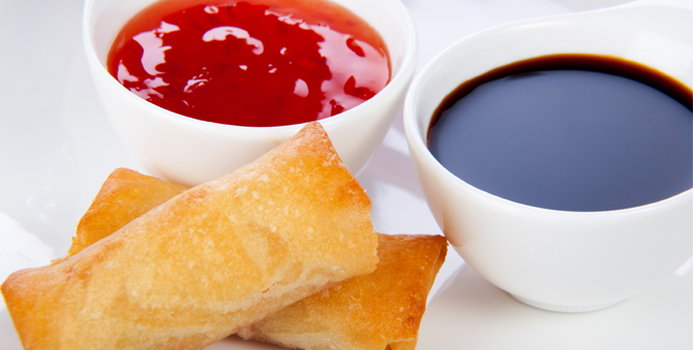MSG (monosodium glutamate) is a form of the naturally occurring amino acid glutamate, and is used as a food additive to intensify the taste of food. This flavor enhancer, originally extracted from seaweeds and used in Asian cuisines, has now become a common find in many food products. Over the years, studies have consistently shown that MSG can lead to a number of immediate and long term health concerns. It is toxic to your neural functions and can disrupt your endocrine system. MSG can cause headaches, nausea, dizziness and fatigue, and habitual usage can increase your risks for obesity, ADHD, memory loss and other pancreatic and psychological disorders. Though the FDA does not prohibit the use the MSG in food products, the discovery of these medical hazards has made the public become increasingly more cautious of this substance.
Beware of Hidden MSG
If you think that confirming with your server that the restaurant does not use MSG in dish preparation keeps you safe from MSG, you are greatly mistaken. The reality is that MSG is practically found in every type of ready-made mix, sauce, dressing, broth and stock you can find in grocery stores.
Manufacturers sometimes use alternative names to mask the existence of this substance in their product. Some manufactures use nonspecific terms such as "natural flavor," "vegetable flavoring" or "flavor enhancers," which are always made from MSG. Even food labels that prominently read "no added MSG" do not always mean that the product is MSG-free. In fact, both the FDA and the USDA consider labels such as "no added MSG" or "no MSG added" misleading since many food products with these labels contain free glutamate.
MSG is made through protein hydrolysis or bacterial fermentation. Therefore, any mentioning of hydrolyzed protein or yeast in the ingredients list indicates the presence of MSG. The following are some of the most frequently used terms that food manufactures use as substitutions for MSG.
- Monosodium glutamate
- Monopotassium glutamate
- Glutamic acid
- Vegetable protein extract
- Whey protein concentrate
- Hydrolyzed vegetable protein
- Hydrolyzed plant protein,
- Hydrolyzed soy protein
- Sodium caseinate
- Calcium caseinate
- Textured protein
- Yeast extract
- Autolyzed yeast
- Senomyx
Cook from Scratch
Since MSG is pretty much found in all prepackaged food products, the only sure way of avoiding them is by making everything from unprocessed ingredients.
- Cook your own food rather than dining out or purchasing frozen meals.
- Buy your ingredients in their raw, natural state rather than processed, canned or vacuum packed. Deli meats, sausages and marinaded food almost always contain MSG.
- Avoid using canned soup, broths and stocks.
- Use basic kitchen condiments, such as salt, pepper and sugar, rather than flavored mixes, soup bases, bouillons, sauces and dressings.
- Use herbs such as garlic, ginger, scallion, cumin, turmeric, chili pepper and basil to stimulate your taste buds and intensify the flavor of your food.
Complete elimination of MSG from your diet is very difficult to do. It requires careful and detailed examination of all of your food labels and more time dedicated to food preparation and cooking. However, considering the amount of damage MSG can do to your body, these inconveniences may be worth it.



